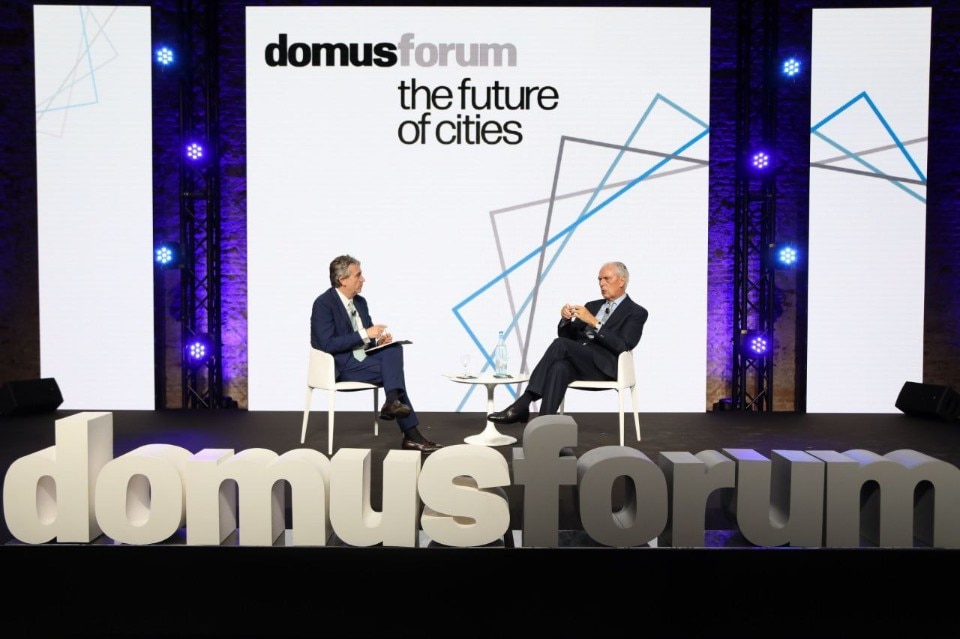Entering its fifth edition, domusforum is the Domus event bringing together companies, institutions, civil society, academia and the design community to launch a dialogue based on critical thinking on the future of the city. Realised in partnership with Edison Next, Hines, Pirelli and Fondazione Cariplo, this edition is articulated around four elements.
Fire, the energy that must embrace the paradigm of sustainability; Earth, theatre and source of resources requiring responsibility; Air, as tangible as a channel of communication and as an arena for the challenge to pollution; Water, source of life and guardian of biodiversity.
Follow the event live on this page. If the page does not update automatically, we recommend a browser refresh.
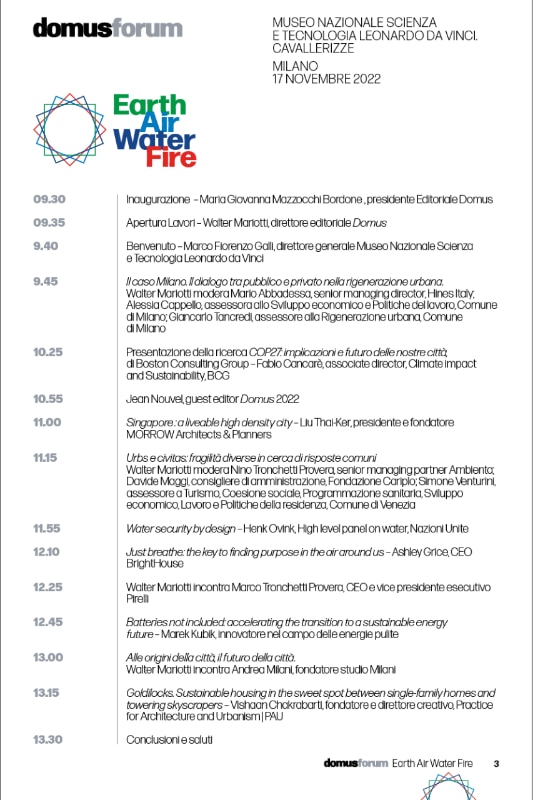
Giovanna Mazzocchi Bordone, president of Editoriale Domus, opens the proceedings and launches the fundamental question: very important geopolitical and economic changes-we have officially surpassed 8 billion-call us to rethink our relationship with the city, with nature and with each other. The technology we used to enslave nature must become a tool to safeguard our planet, the basis for our lives.
With Walter Mariotti, Domus editorial director we go back to the 4th century B.C., to a philosophical thought that already evoked a fifth element, the human element, as an actor in the achievement of harmony, a harmonic kosmos in which to progress.
Marco Fiorenzo Galli, director general of the Leonardo da Vinci National Museum of Science and Technology, leads us to reflect on how it is no longer possible to think about total control of the complexity of the elements, except by rethinking the paradigm of science, and the responsibility of politics and professionalism.
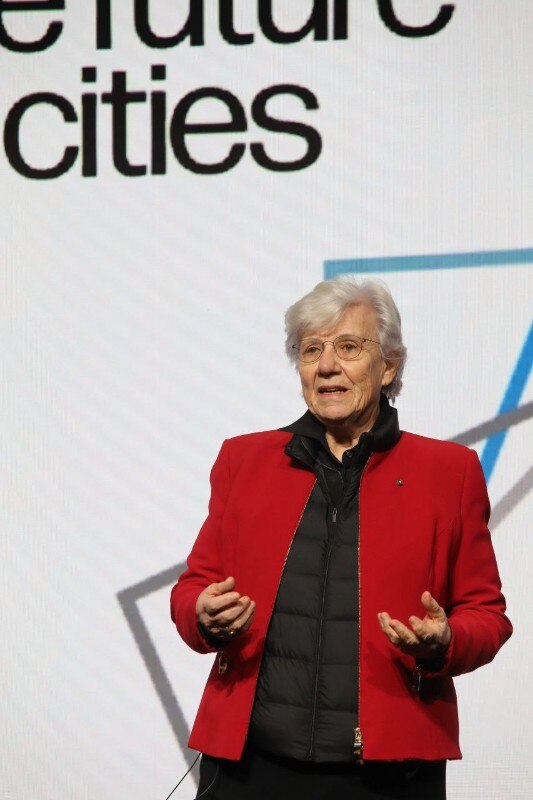
Has architecture really disappeared from the city?
For Mario Abbadessa, senior managing director and country head of Hines Italy, the sustainability of development and investment on cities is now to be given as a necessary condition, and it is time to move to a social factor of sustainability, which can finally consider aesthetic values as well.
Giancarlo Tancredi, councilor for urban regeneration of the City of Milan, points out how the building land on the city has been reduced to 4 percent, in order to aim for a regeneration of the existing by investing in the metropolitan dimension of a synergy with outside municipalities. In Milan’s experience, the public-private relationship remains fundamental as a driver of this progress.
He is echoed by Alessia Cappello, councilor for economic development and labor policies of the City of Milan: public benefit is the key to this virtuous process. Commerce and productive activities join this, and we must also consider them in the feeling of citizenship that they manage to generate through the daily interpersonal relationship that orbits around them.
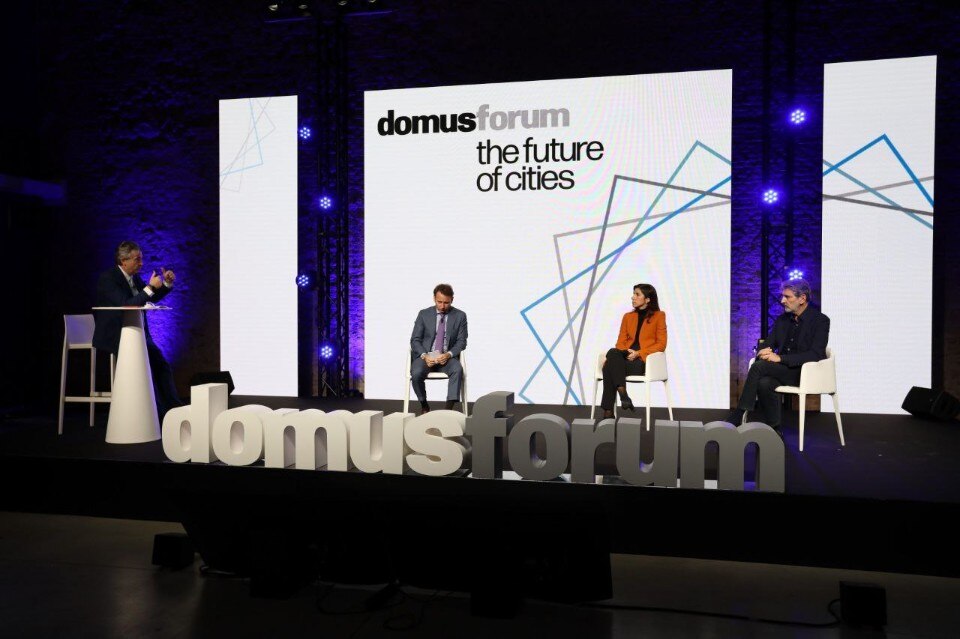
Not only urbs and urbanitas, but civitas, urban democracy that is generated by projects.
For Abbadessa, a virtuous case to be known is the Torre Velasca, a symbol of Milan’s century par excellence, the twentieth century, restored today for the first time by Hines with Studio Asti: it has generated value for the spaces, for Milan’s architectural heritage but above all for its urban ecosystem: new functions, use of environmentally sustainable materials and creation of new public pedestrian space are actions of concrete contribution to the virtuous growth of the city.
Polycentric city and 15-minute city are the ideas that Tancredi evokes as signs of the urban innovation taking place: the best way is to give development and value to the whole territory of the city. All of Milan’s area is covered by the new projects coming up. The strategy is to create new centralities, to create a city of proximity.
How does the perspective of work change in this framework?
For Cappello, it is doing business that can activate effective, stable and even appreciable urban regeneration: the presence of businesses improves the vitality of urban spaces. With a view to consolidating a polycentric city, the municipality, for example, has activated partnerships with coworking and company headquarters spread throughout the territory to decentralize part of its offices. These are measures to combat the danger of a permacrisis that threatens to create a rift between the world of work, urban life and citizenship, especially in its younger segments, in a tomorrow that is now more than ever perceived as uncertain.
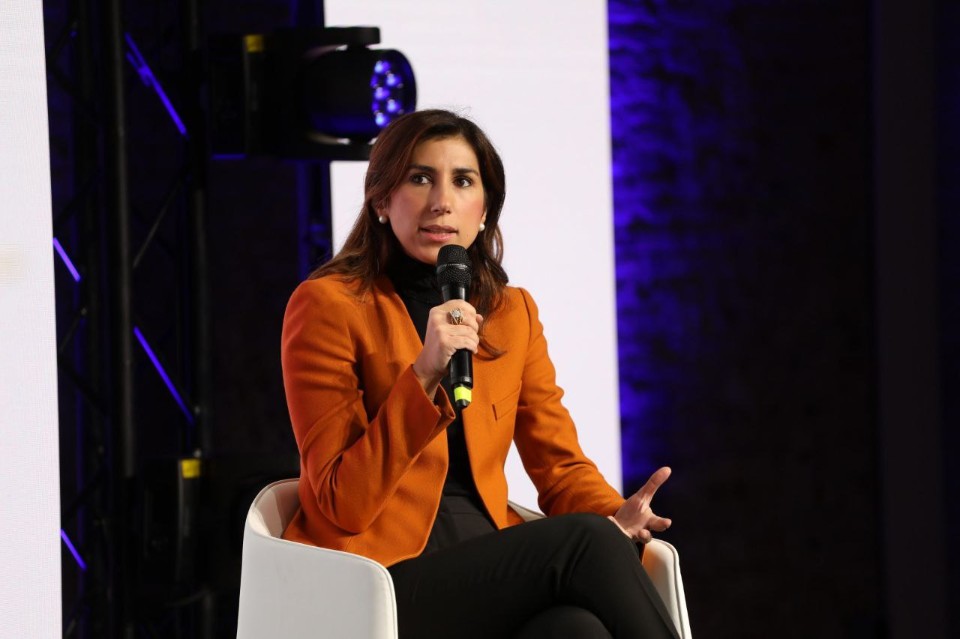
From social housing to living, for example, for students. What is the current scenario?
Abbadessa sketches a scenario where only 5 percent of supply is institutional. The role of private investment is therefore crucial, and of these investments the challenge for the coming years is to increase the social benefit component. The whole community of urban actors must support this kind of initiative.
Business has a social responsibility, it is cleared, Cappello raises, but its public benefit role is not equally cleared, and it is time for that to happen.
The creation of opportunities and conditions for investment is the public’s mission, says Tancredi instead, as told by the Milan case of Reinventing Cities, which has seen potential for urbanitas in areas such as Piazzale Loreto or Ex Macelli, or the Rubattino area where La Scala will bring its stage laboratories, the Conservatory in Rogoredo and Renzo Piano’s new campus in Bovisa. However, a difficult year lies ahead in such a critical international scenario.
The dream of a Milan 2033?
For Cappello it is that of a city of young people, a fertile ground. A city of all that attracts resources and above all becomes more accessible.
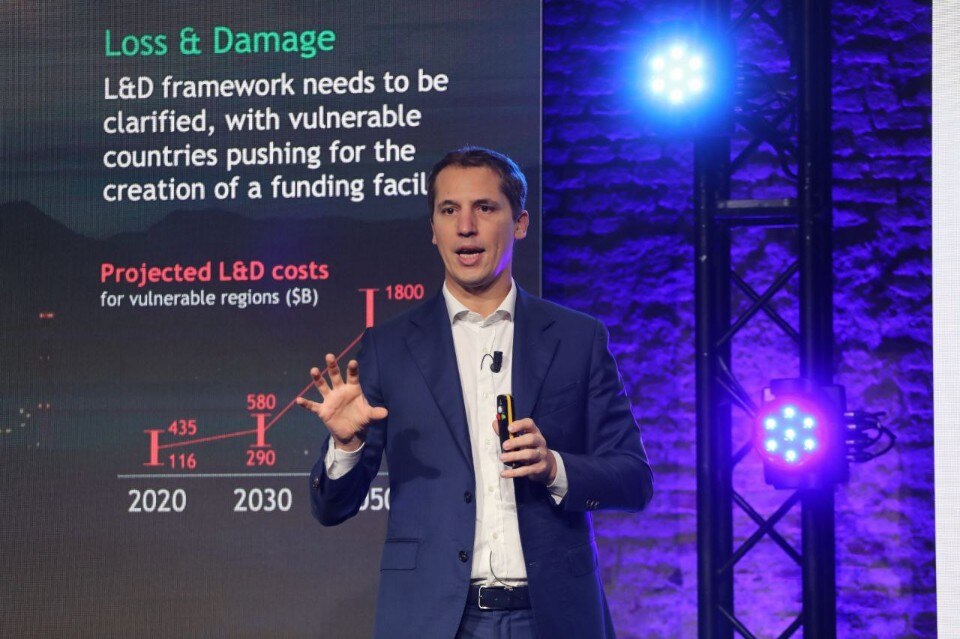
The Milan case. Public-private dialogue in urban regeneration.
Between 1850 and 1900, the planet saw an average of one extreme event every year, Fabio Cancarè, associate director, climate impact and sustainability at BCG, tells us.
Today that number has increased exponentially, is 8.6 times greater than in the past, with phenomena of almost double the intensity. The danger brought by an uncontrolled rise in temperatures on the order of 5 degrees is not only linked to GDP collapses of around 13 percent, but also to droughts and depopulation of vast areas.
To achieve the goals set in Paris in 2015, COP conferences focus on: mitigation, financing, adaptation, and post-disaster action. Adaptation was the most popular word at COP27: it is more than topical, it acknowledges the change that has already occurred, and it responds to the situation of the countries of the global south that are the protagonists of this edition of the conference.
Global population increases and urbanization continues – 1 in 5 people will live in megacities of more than 10 million – and BCG’s response is a city of the future made up of urban sustainability, infrastructure resilience, inclusivity and hyperlocal dimensions, digitization (particularly of public services) , encouragement of outdoor living, and interconnectedness. The transformations of Bangkok and the urban reforestation of cities such as Beijing and even Milan give visible form to these trends, as does on another front the smart in services and government in cities such as London or Montréal, or the experimentation with regulation and autonomous vehicles especially for public service, as has happened in Boston where the project has also created a new availability of free public space.
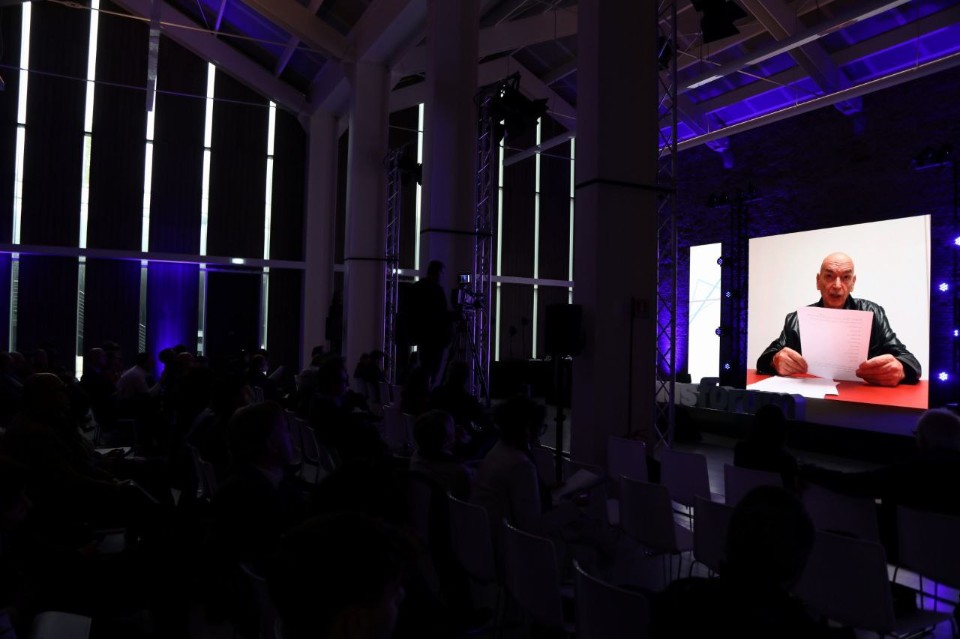
A greeting from Jean Nouvel, Domus guest editor 2022
With this speech, Nouvel closes a year of his Domus, launching an impetus to develop a general awareness toward the future of cities.
“Living well is fundamental to everyone's life. Without care for the land no well-being is possible. And it is the task of young ecologists to light a fire: good intentions are fine but the mission is to translate ideas into action.”
Singapore: a liveable high density city
For Liu Thai-Ker, president and founder MORROW Architects & Planners, the fact that Singapore has long been the densest city in the world should not be seen as an excuse for not looking at better environmental quality. Smart planning is planning grounded in science, addressing the whole city: by limiting land consumption Singapore has set the standard, all over the world, now in China as well.
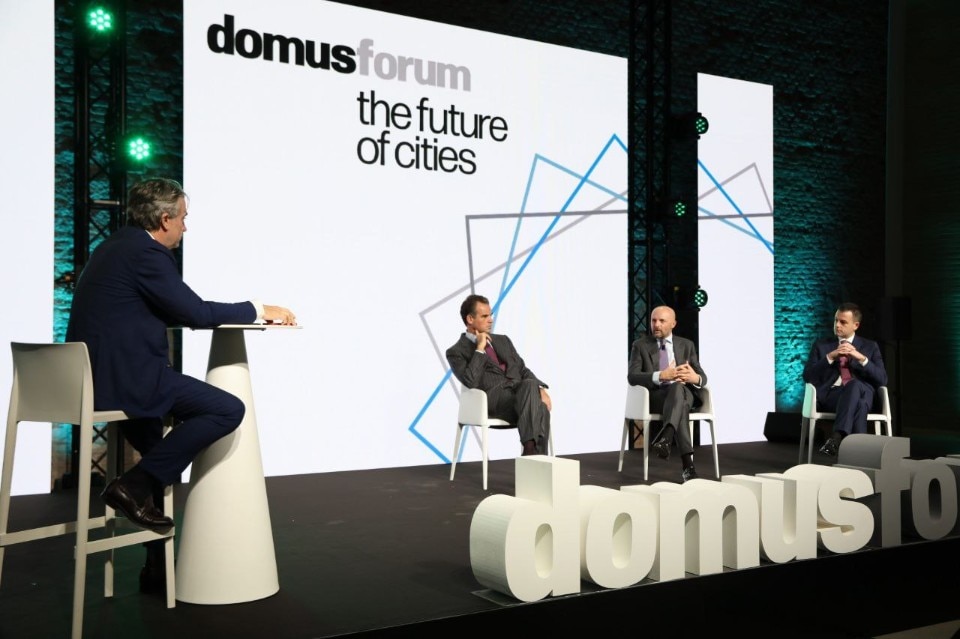
Urbs and civitas: different fragilities in search of common answers
Fragility as opportunity. Nino Tronchetti Provera, managing partner & founder Ambienta, asks: bearing in mind that it is impossible to stay within the Paris parameters, how do we adapt to the finiteness of the planet without stopping its economic functioning? The construction sector, which as of today still produces 80 percent non-recyclable waste, is where the most experimentation can be done.
What about a case like today’s tourist Venice?
Simone Venturini, councillor for tourism, social cohesion, health planning, economic development, labor and residence policies for the municipality of Venice, points out that the challenge is the balance, between a city visited and a city lived in, bringing jobs back to the city beyond tourism.
Social fragility?
For Davide Maggi, board member of Fondazione Cariplo, seeing the city of souls, rather than stones, means creating places, communities of meaning. A stimulus that starts from the foundations, from schools and commons such as streets and gardens, recreating the beautiful to recreate meaning (sensibility. direction, significance).
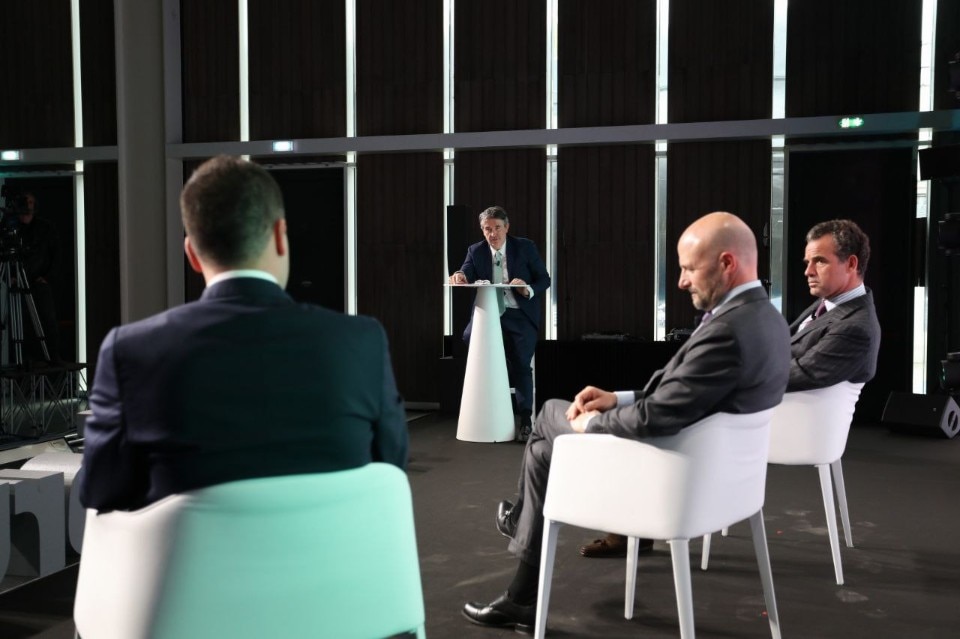
Finance at the service of communitas? Long but necessary process, says Tronchetti Provera: establishing funds for green building for example is a topic of immediate tomorrow.
And the city is not a dead place in which not to invest, Venturini recoils: after the pandemic new people moved to Venice, for example, because they recognized its very high quality of life, and the mission is to make the city livable, accessible, habitable therefore, for everyone.
It is about accompanying a shift from assistance to empowerment, Maggi confirms, an action that moves on the cultural track to create and consolidate relationships between people. However, if in the places where the world's greatest wealth is produced, business models are not sustainable, we have a problem, Tronchetti Provera closes, and innovation in construction, in architecture can initiate change. Consistent action in fact is the core value, Maggi confirms, even in finance.
Water security by design
Water and climate change are directly linked, Henk Ovink from the UN High level panel on water tells us. Nine out of 10 natural disasters are water-related, with more than $1.7 trillion in damage to over 3.4 billion people (most in Asia).
To secure water resources, we need to build a process based on continuity, coherence and commitment, a project approach, driven by “science and solidarity,” as Secretary Guterres said.
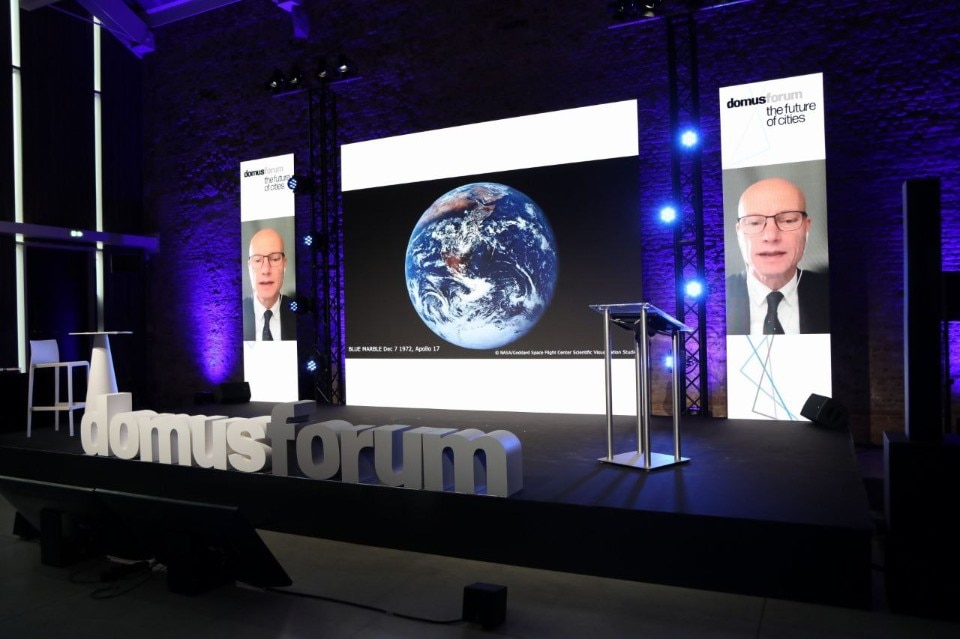
Just breathe: the key to finding purpose in the air around us
We all have music that affects us and generates emotions: it comes through the air. For Ashley Grice, CEO of BrightHouse, without air there is no connection, no senses. And there is no meaning, no purpose, a fundamental element of human life, where reinforcing each other in terms of meaning is instead a biological imperative.
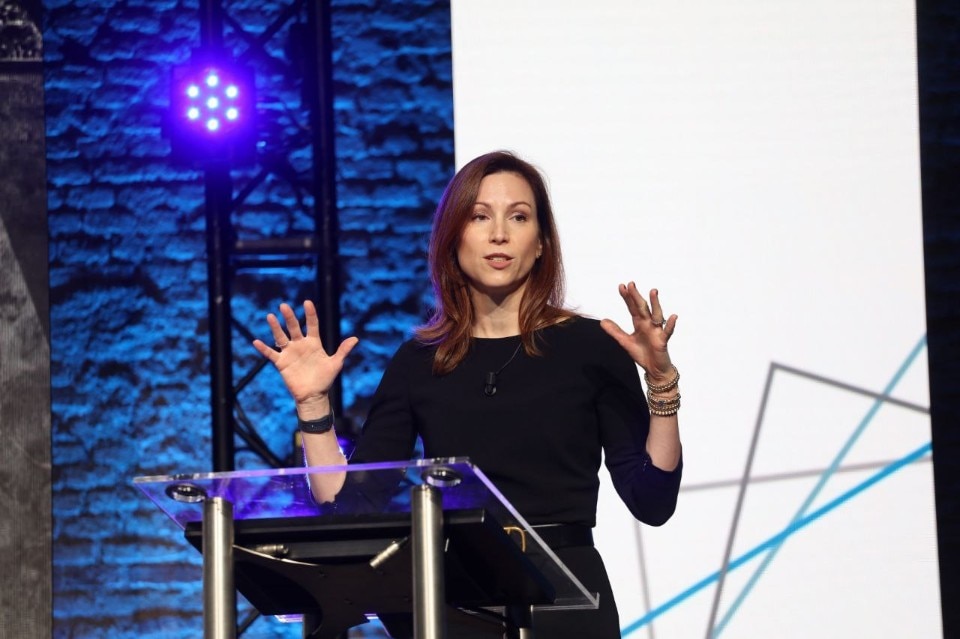
Quality and beauty, core values: Walter Mariotti meets Marco Tronchetti Provera
Environment is also beauty, says Marco Tronchetti Provera, executive vice president and CEO Pirelli: “it is the spirit of reconversion interventions aimed at the city, such as in Milano Bicocca, or of our most recent and innovative plant, the one in Settimo Torinese,” developed with Renzo Piano, surrounded by a cherry tree forest; it is that of artistic projects such as Pirelli magazine, the Calendar, and the opening of Pirelli Hangar Bicocca on former production areas.
Culture, however, is not developing as fast as communication technologies, and similarly other heavy challenges have caught up with us. A community rapprochement stimulated by the pandemic, for example, has been responded to with a war that has generated an economic and, above all, material crisis: the 20th century is yesterday, we need to actively unite to design a different tomorrow.
A strengthened geopolitical presence of Europe-even of Italy, if it invests in the strong values of its history and culture-is essential, Tronchetti Provera tells us, to guarantee that solidarity that combined with the production of wealth allows us access to the privilege of democracy.
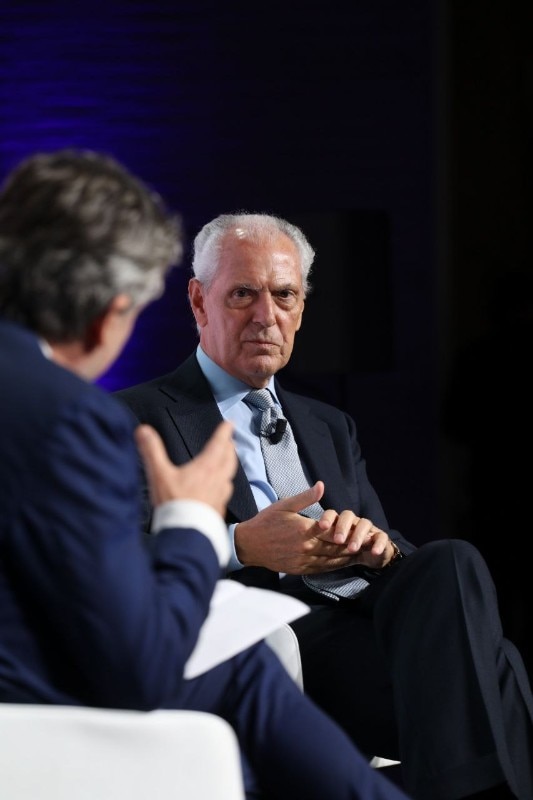
Batteries not included: accelerating the transition to a sustainable energy future
The cheapest and cleanest forms of electricity are unfortunately intermittent, clean energy innovator Marek Kubik warns us, and large-scale deployment of energy storage technology is critical to their success.
That’s why Kubik took us on a journey through all the “batteries” of the new world: from the elementary unit of the lithium-ion battery to domestic storage units to integrated shared electric mobility systems.
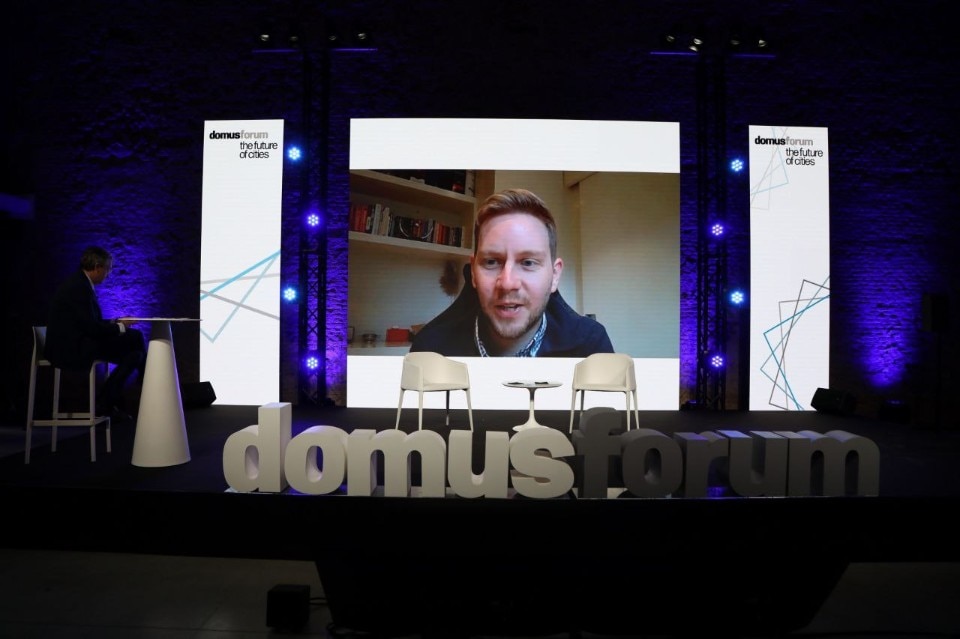
At the origins of the city, the future of the city. Walter Mariotti meets Andrea Milani
How can the future be inspired by the past? Working between Siena and India, Andrea Milani, founding architect of Studio Milani, knows the value of absorbing memory into invention, a guiding principle already held by another Domus director, Ernesto Nathan Rogers. A city like Siena, so physical and charged with shared metaphysical values, is an anthology of layered realities that have been intervened on over the years to make them parts of a future (this has happened, for example, with the Spedale di Santa Maria della Scala) and the cradle of a thought that sees civic responsibility as a foundation in the construction of the city.
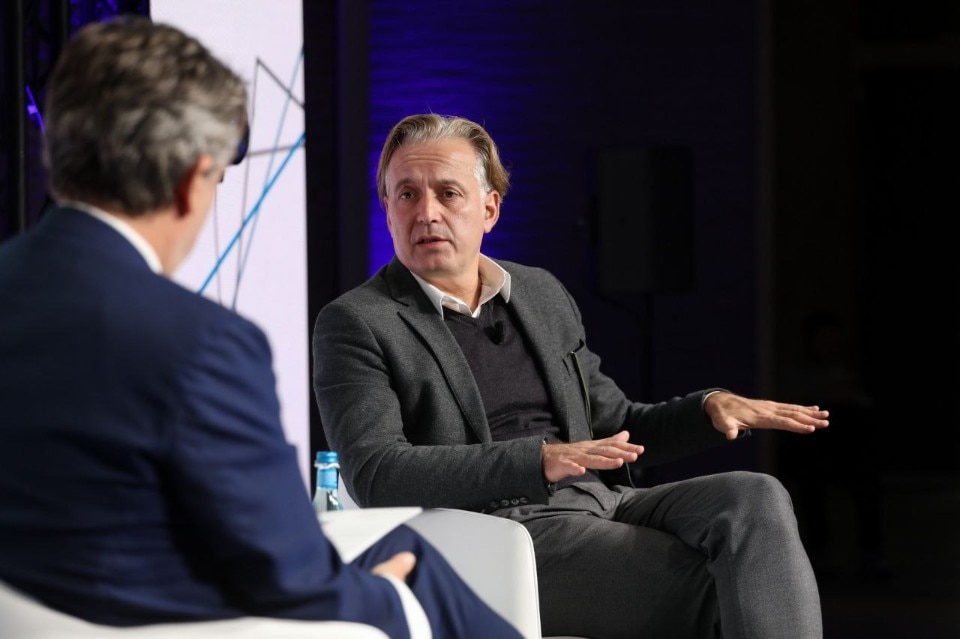
Goldilocks. Sustainable housing in the sweet spot between single-family homes and towering skyscrapers
“Let’s start thinking about how to accommodate the 11 billion people expected on Earth by 2100, and how new buildings can combat climate change instead of making it worse.” The invitation comes to us from Vishaan Chakrabarti, founder and creative director Di Practice for architecture and urbanism – PAU: “Goldilocks,” the solution he proposes for sustainable building, sits at the balance point between single-family homes and towering skyscrapers.
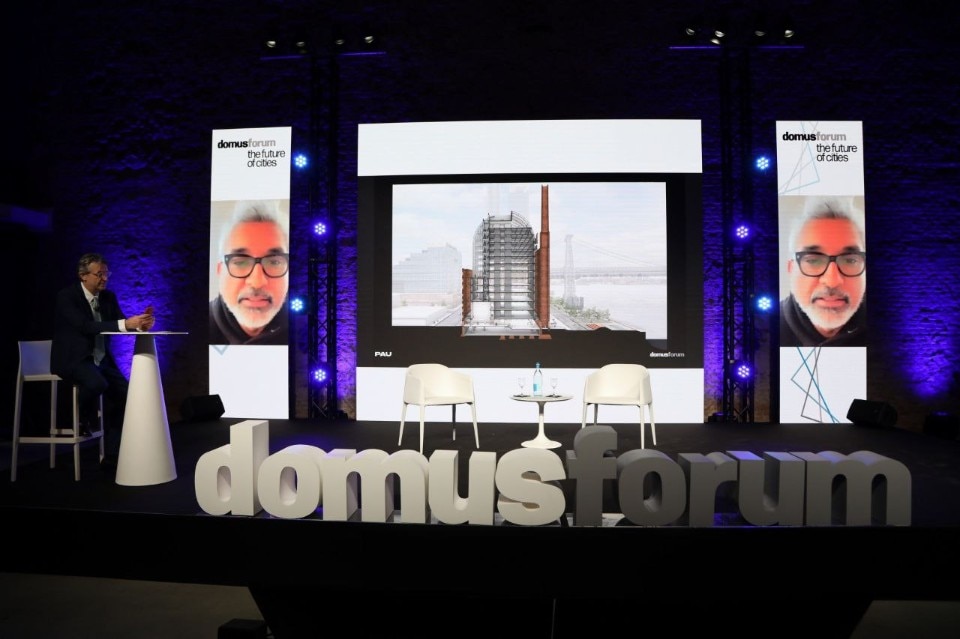
All things are endowed with intelligence, and participate in thought
“The nature of God is a circle whose center is everywhere and whose circumference is nowhere.” In thanking all the people who contributed to domusforum 2022, Walter Mariotti reminds us that if the philosopher Empedocles had already formulated this thought, we have a direction on which to direct our reflections, with the wish to meet again next year for a new edition of domusforum.


